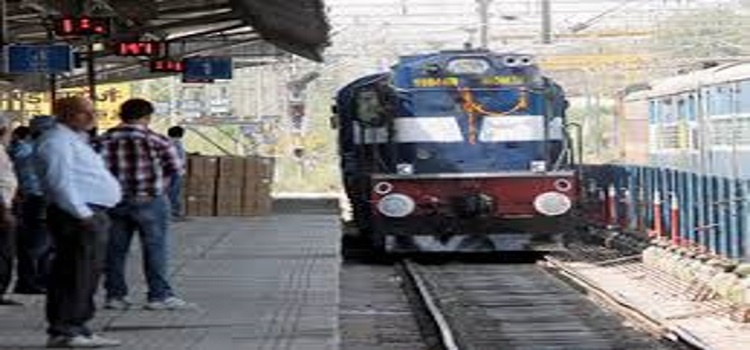
Indian Railways should look into innovative ways for revenue generation and closely monitor its expenditure, the Comptroller and Auditor General (CAG) has said in a report that was tabled in Parliament on Tuesday.
“The operating ratio during 2016-17 had deteriorated to the lowest level of 96.5% since 2000-01 when it was 98.3%,” said the CAG report on railways finances for 2016-17.
“Since, operating ratio is a direct indicator of the working of railways, the ministry of railways should also look into the various innovative ways for revenue generation and closely monitor the expenditure.”
The report said the national transporter should revisit the passenger and other coaching tariffs so as to recover the cost of operations in a phased manner and reduce its losses in its core activities.
“The fixation of passenger fare and freight charges should be based on the cost involved so that it brings both rationality and flexibility in pricing, considering the financial health of railways and the current market scenario. There is hardly any justification for not fully recovering the cost of passenger services in case of AC classes,” the report said.
It said the practice of issuing free and concessional tickets should be scaled down. Non-availability of sufficient funds in depreciation reserve fund to replace the over aged assets is indicative of weak financial health of the railways, the report said. The CAG highlighted huge backlog of renewal and replacement of over aged assets in the railway system, which needs to be addressed for safe running of trains.
“Railways should impress upon the budget controlling authorities for regular monitoring of expenditure,” the report said.
“Internal control mechanism should be strengthened to reduce the instances of misclassification of expenditure. The unsanctioned expenditure should be controlled; administration should ensure all unsanctioned expenditure is regularised on priority.”
‘Operating ratio has weakened to 16-year low; passenger fares, freight charges must aim to cover costs’
The reported operating ratio of 96.5% in 2016-17 does not reflect the true financial performance of Indian Railways, as this would have deteriorated to 99.54% if the actual expenditure on pension payments was taken into account, according to the CAG report tabled in Parliament.
An operating ratio of 99.54% means that Railways is spending 99.54 paise to earn 100 paise.
‘₹5,000 crore higher’
“Had the actual amount ₹40,025.95 crore required to meet the expenditure on pension payments of Zonal Railways been appropriated to the Pension Fund [instead of ₹35,000 crore], the total gross working expenditure of IR would have increased to ₹1,64,537.93 crore and the operating ratio would work out to 99.54%,” the Comptroller and Auditor General of India said.
Even at 96.5%, the operating ratio was at its poorest level since 2000-01 when it was 98.34%. Pitching for revisiting the passenger and other tariffs to reduce losses in core activities, the CAG said there was hardly any justification for not fully recovering the cost of passenger services in the case of AC First Class, First Class and AC 2-Tier class. “However, since one of the factors for not recovering full cost from these classes could be the issue of free and concessional fare passes [or] tickets to various beneficiaries in good numbers, this practice needs to be scaled down,” it added.
The CAG said passenger fares and freight charges should be based on the cost involved so that it brings both rationality and flexibility in pricing, considering the financial health of Railways and the current market scenario.
“Non-availability of sufficient funds in Depreciation Reserve Fund to replace the overaged assets is indicative of weak financial health of Indian Railways,” it said, adding that the huge backlog of renewal and replacement of over aged assets in railway system needs to be addressed for safe running of trains.
Control mechanisms
There is a need to strengthen internal control mechanisms to reduce instances of misclassification of expenditure, the CAG said.
“The unsanctioned expenditure should be controlled; administration should ensure all unsanctioned expenditure is regularised on priority,” it said.
Further, the CAG said that the Indian Railways should follow the system of disclosing significant accounting policies forming the basis of preparation of financial statements such as accounting of fixed assets, depreciation and investments.
